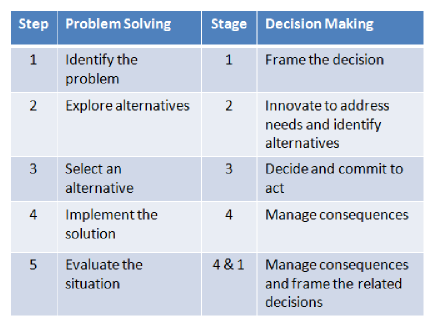Learning from Errors: Refining Your Decision-Making Skills Skills
In today’s fast-paced world, the act of making choices can seem overwhelming. Whether it’s small choices such as what to eat for lunch to significant life decisions like career changes or relationship commitments, our daily lives are filled with moments that demand us to take a stand. However, many discover themselves struggling to make the correct choices, often falling into the pitfalls such as decision fatigue or paralysis by analysis. Learning from mistakes becomes essential, as each misstep presents valuable lessons that can enhance our decision-making skills.
Honing the art of effective decision-making involves understanding both the Psychological and practical aspects of how we choose between options. This article will explore effective techniques that can help you improve your decision-making skills, enabling you to navigate pressure with confidence. We will delve into the critical differences between emotional intelligence and logical reasoning, and uncover effective strategies to analyze options and make choices that lead to positive outcomes. Whether you are a leader making tough calls or an individual seeking to strengthen your daily decisions, gaining insights into these processes can empower you to make choices with clarity and purpose.
Strategies for Improved Making Decisions
To boost your decisions skills, start by incorporating a methodical approach. One efficient method is to employ decision frameworks that provide direction and insight. Frameworks such as the SWOT framework (Strengths) help evaluate alternatives in a structured way. By breaking down complex decisions into easier components, you can gain perspectives into potential results and make wise choices.
Another beneficial technique involves developing social intelligence. Being aware of your emotions and the emotions of others in making decisions situations can provide insightful understanding. It enables you to navigate difficult decisions more effectively by identifying biases and emotional triggers that may affect your judgment. Developing emotional intelligence aids in building stronger relationships and fostering collaboration, especially in group decision-making settings.
Finally, adopting a mentality of ongoing learning from previous choices can considerably improve your future decisions. Reflect on https://canvas.instructure.com/eportfolios/3535837/entries/13029667 and failures to spot trends and insights learned. This self-reflection helps in avoiding recurrence of errors and encourages the development of improved decision-making habits. Applying these methods continuously will empower you to make wiser and more confident decisions in various aspects of your personal life.
The Role of Psychological Science in Decisions
Understanding the psychology behind the decision process can substantially enhance our capability to make sound decisions. Our minds are wired to process information and make choices based on both rational analysis and emotional responses. Cognitive distortions, such as belief perseverance or initial bias, can cloud our decision-making, causing us to favor information that supports our existing views while dismissing contradictory evidence. By acknowledging these tendencies, we can more effectively handle our choices with a more lucid, more objective mindset.
Emotional intelligence also plays a critical part in our decision-making processes. The ability to understand and manage our emotions, as well as connect with others, allows us to maneuver through complex situations with greater ease. High emotional intelligence enables us to assess not only the data but also the feelings involved surrounding a decision. This equilibrium between logic and feelings ensures that we consider the impact of our choices on ourselves and those around us.
Additionally, the psychological idea of choice fatigue underscores the importance of mental energy when facing choices. As we encounter numerous decisions throughout the day, our ability to think rationally can diminish, leading to less favorable decisions. By structuring our approach to decision-making, focusing on key choices, and permitting breaks and reflection, we can combat decision fatigue and improve our general effectiveness in arriving at well-informed and considered choices.

Navigating Decision-Making Challenges
Decision-making often involves navigating various issues that can obstruct our ability to make effective decisions. One major obstacle is the pressure many face when prompt decisions are needed. Under such circumstances, individuals may default to automatic reactions instead of reflective consideration. To combat this, it is important to create techniques to stay cool and attentive. Engaging in awareness and taking intentional interruptions can present an occasion to analyze the situation, consider options, and lessen the risk of rash choices.
Additionally, another common obstacle is the anxiety of making the wrong decision. This concern can lead to paralysis by analysis, where individuals ponder and procrastinate making decisions. To overcome this, it's essential to acknowledge that no choice comes without consequences, and gaining insights from errors can be a valuable part of the experience. Fostering a mindset that sees failures as chances for improvement can enable people to make choices more assuredly, even in ambiguous situations.
Lastly, the influence of collective behavior can complicate decision-making. In collaborative settings, reaching a unified decision can be challenging due to differing viewpoints and characteristics. Implementing organized how to make decisions faster can help simplify the process by providing definitive guidelines for considering options. Furthermore, fostering an culture of honest dialogue promotes equitable input from all members, ultimately leading to more knowledgeable and joint choices.